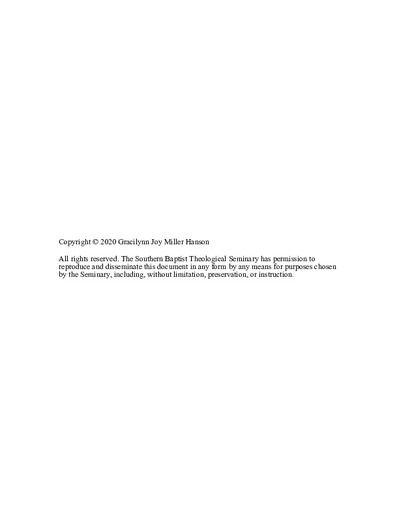Establishing a Framework for Female-Gendered Embodiment in a Redemptive Context
Subject
Woman (Philosophy)--Religious aspects--ChristianityGender identity--Religious aspects--Christianity
Abstract
This study establishes an ontological framework for defining female-gendered embodiment, proposing a definition which is scripturally grounded and ontologically-based. If a woman does not comprehend her essential purpose and ontological nature, she may perform duties and responsibilities, but the richness of her living within her God-given design will be diminished—to the detriment of the individual, the family, the church, and society as a whole. Likewise, women, families, and churches will suffer when women are communicated an incomplete definition of their ontological meaning (e.g. a strictly functionally-based or roles-derived meaning). Though gender is the central topic of much present-day evangelical scholarship, evangelical scholars typically do not have a shared, working definition of the term. This research articulates a theological paradigm to identify female-gendered embodiment, distinctively engages the only known theological model for defining women ontologically (by Evdokimov), establishes a framework to define female-gendered embodiment ontologically, and assesses the framework from various perspectives. The proposed, original taxonomy of gendered embodiment serves to foster cross-boundary discussions toward the objective of defining female-gendered embodiment within theological anthropology.

